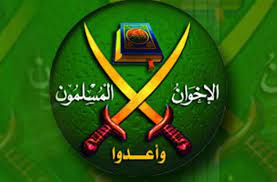The Muslim Brotherhood, the parent organization of Hamas, secured a major victory in the elections held on September 11. Running under the banner of the “Islamic Action Front,” the party won 32 seats out of 138, giving it control of about 25% of the Jordanian parliament.
This is an unprecedented achievement, with estimates suggesting that over 460,000 voters backed the party.
The Islamic Action Front’s campaign centered on key issues such as the war in Gaza, the “threat” to the Al-Aqsa Mosque, and the controversial idea of an “alternative homeland”—a concept that the party claims Israel promotes, envisioning Jordan as the new home for Palestinians.
The party garnered strong support among Palestinians in Jordan and Bedouin tribes in the southern part of the kingdom, including the Al-Hweitat tribe, from which Maher Eljazi, who killed three Israelis at the Allenby Bridge crossing on September 8, hailed.
The Brotherhood’s electoral success reflects the prevailing sentiment on the Jordanian street since the beginning of the Gaza war.
Hamas has managed to influence public opinion in Jordan, leading to large-scale demonstrations in support of its military wing and the broader idea of “Palestine from the river to the sea.”
During the war, an alliance appeared to form between the Muslim Brotherhood, Iran, and Hamas, aiming to destabilize King Abdullah’s rule and potentially open a new front against Israel from Jordanian territory. There were also attempts to establish terrorist infrastructures within Jordan to act against the Hashemite government.
For months, senior Hamas figures have used both media and direct communications to incite Jordanians to protest against King Abdullah, calling for the expulsion of the Israeli ambassador and the suspension of the peace agreement with Israel.
In response, Jordanian intelligence arrested several Muslim Brotherhood operatives and uncovered weapons caches, allegedly smuggled from Iran, intended for use in attacks.
King Abdullah responded by barring Hamas leaders from entering Jordan, issuing a clear warning through intermediaries and intelligence officials that he would act decisively against anyone threatening his rule.
The king reminded them of his father, King Hussein, who crushed the PLO’s uprising in 1970, in what became known as “Black September.”
The Muslim Brotherhood’s election victory presents two immediate and dangerous challenges to the Jordanian regime:
- Influence over Jordanian Public Opinion: The Brotherhood’s success has legitimized its leadership of the ongoing protests in Jordan, which continue to pose a threat to the king’s authority as the Gaza conflict persists.
- Increased Pressure on King Abdullah: Within parliament, the Brotherhood will likely intensify efforts to push for the expulsion of the Israeli ambassador and the suspension of Jordan’s peace treaty with Israel.
For now, King Abdullah is maintaining a delicate balance, allowing demonstrations to continue as long as they remain peaceful. However, Israeli security officials warn that if the pressure on the king escalates, he may take drastic measures, potentially outlawing the Muslim Brotherhood, as Egyptian President al-Sisi did with the group in Egypt.




